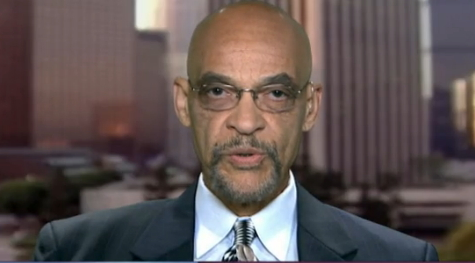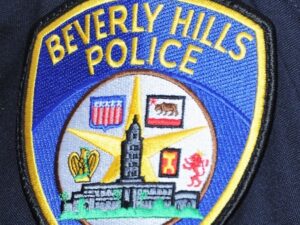Earl Ofari Hutchinson
I still can’t shake the memory of that Saturday evening a few years ago when I was driving back from shopping on Rodeo Drive in Beverly Hills. I hadn’t gotten a mile from the shopping area when I was flagged over by a Beverly Hills officer. I was not speeding. I did not run a red light. In fact, I did nothing I thought was untoward.
The officer was polite. But he gave no explanation for the stop. After the routine license and registration check, he waved me on. I was hardly the exception. My experience has been the experience of legions of Black motorists, shoppers and pedestrians coming and going in Beverly Hills for what seems an eternity. The latest charge of racial profiling comes from of all places two Black LAPD officers who are suing Beverly Hills charging that they were racially profiled while driving through the city.
Beverly Hills police and city officials predictably once more circled the wagon. They denied profiling and boasted that they looked forward to their day in court to refute all charges that they engage in systematic racial profiling of Blacks. The lawsuit by the Black officers is a follow up to prior lawsuits that Beverly Hills police routinely stop, harass, target, cite, and arrest dozens of African Americans in the city for everything from alleged shoplifting to motorized bike or vehicle infractions.
The real issue is racial profiling. It’s based on long-standing complaints of harassment of African Americans who drive through, work, shop, or even live in the city. Beverly Hills officials and business leaders protest the charge that they routinely harass Blacks in the city. They simply say they are enforcing ordinances and protecting merchants against theft. However, the arrest and citation numbers tell a far different story.
With almost no exception the dozens of persons cited or arrested are Black, with an occasional Hispanic tossed in. If the city is indeed as it claims simply enforcing the laws, the numbers would not possibly be so outrageously racially skewed. They’d have to expect one to believe that there are no young whites riding scooters, skateboards, jaywalking, or shoplifting. None! That claim is laughable, if not pitiable.
It’s even more laughable because of Beverly Hills’ history of racial complaints. In fact, Blacks have long complained that they are stopped, searched, followed, and harassed by Beverly Hills police, eyeballed suspiciously by clerks in stores, and have been ignored in restaurants. A major lawsuit for racial profiling was brought by seven Blacks in 2007.
A demonstration and press conference were held at the Beverly Hill school district offices a few years ago complaining of racial discrimination in the schools. Then there was the well-publicized degrading traffic stop and arrest of a prominent Black businessman and the detention of a Black film producer a few years back. Many more such encounters could be cited to make the disturbing case that Beverly Hills simply does not want or welcome African Americans in the city in any numbers, if at all.
In response to the loud complaints and the much-deserved bad press the city was getting, city officials agreed in 2021 to set up a Human Relations Commission to deal with issues of racial discrimination complaints. The question is what has been the Commission’s purpose and its effectiveness?
This targeting of African Americans in Beverly Hills fit the all-too-familiar pattern of many unwarranted stops of Black and Latino motorists and pedestrians in far too many cities. Predictably, as in most racial profiling allegations, Beverly Hills police and city officials hotly deny the profiling charges. Yet, Beverly Hills is hardly an aberration.
The refusal by many public officials to admit that racial profiling exists has helped torpedo efforts by local and national civil rights groups to get law enforcement to do something about it.
Nationally, dozens of states do collect data either voluntarily or compelled by state law on unwarranted pedestrian contacts and traffic stops. Still, most police officials, as in Beverly Hills, vigorously contend that good police work is about the business of catching criminals and reducing crime, not about profiling Blacks and Latinos. If more Black and Latino men are stopped, it’s not because they’re Black or Latino but because they commit more crimes.
The other even more problematic tact used to debunk racial profiling is that there have been few statistics that have been compiled on unwarranted stops. In two surveys, the federal Bureau of Justice Statistics took a hard, long look at racial profiling using information that it got from citizens. Both times, the agency found that while whites are stopped, searched, and arrested less frequently than Blacks or Latinos, there was no hard proof that the stops had anything to do with race.
The dozens of lawsuits from Blacks alleging racial profiling by Beverly Hills police and business owners and the attempt by Beverly Hills officials to duck, dodge, and deny any wrongdoing has deservedly put the city back on the racial profiling hot seat. Now the perennial question is what are they going to do about it?
Earl Ofari Hutchinson is an author and political analyst. His forthcoming book in 2022 is Why the GOP Became a White Supremacist Party (Middle Passage Press) He is the host of the weekly Earl Ofari Hutchinson Show on KPFK 90.7 FM Los Angeles and the Pacifica Network Saturdays, 9:00 AM 90.7 FM. His political affairs commentaries can be found weekly on thehutchinsonreport.net.

